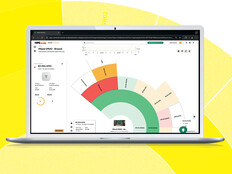Despite Google Fiber, Kansas City Faces Steep Digital Divide [Video]
An interesting chasm has developed in Kansas City over the last few years. When Google announced a contest to choose the first city to get its super-fast broadband known as Google Fiber, the Kansas City, Kan., community rallied to win the selection. Shortly after the announcement, Google added Kansas City, Mo., to the initial rollout and began installing new fiber to support 1-gigabit speeds.
The positive affects of blazing-fast Internet on Kansas City’s tech scene have been well-documented by the national media as well as local sites like Silicon Prairie News. But while some residents have had access to the country’s fastest Internet, others have had no access at all. In fact, 25 percent of residents don’t have broadband access, and 17 percent don’t have Internet at all. The Verge dug into Kansas City’s digital divide and discovered the work of the KC Freedom Network, an organization looking to bring access to all citizens.
Just over a year ago, right around the same time Google actually began installing Fiber here, a ragtag alliance of affordable-internet advocates including a jazz club proprietor, a Pentecostal Christian minister and a former Occupy Wall Street protester began building their own nonprofit wireless internet service specifically designed for low-income households, a system they call the KC Freedom Network. Even though it can’t match Google Fiber in terms of raw speed, the KC Freedom Network offers something to users they say Google does not: truly affordable internet.
Dixon says that many members of her community can’t even afford Google’s cheapest Fiber internet plan — the "free" tier, which actually does cost something: $300 up front to install Fiber per household, or $25 a month for a year. It’s free after that. The KC Freedom Network doesn't charge anything for many of its users, but eventually hopes to offer internet for $20 a year.
Check out the video below for a closer look at the access movement in Kansas City, and be sure to read the full story on The Verge.








